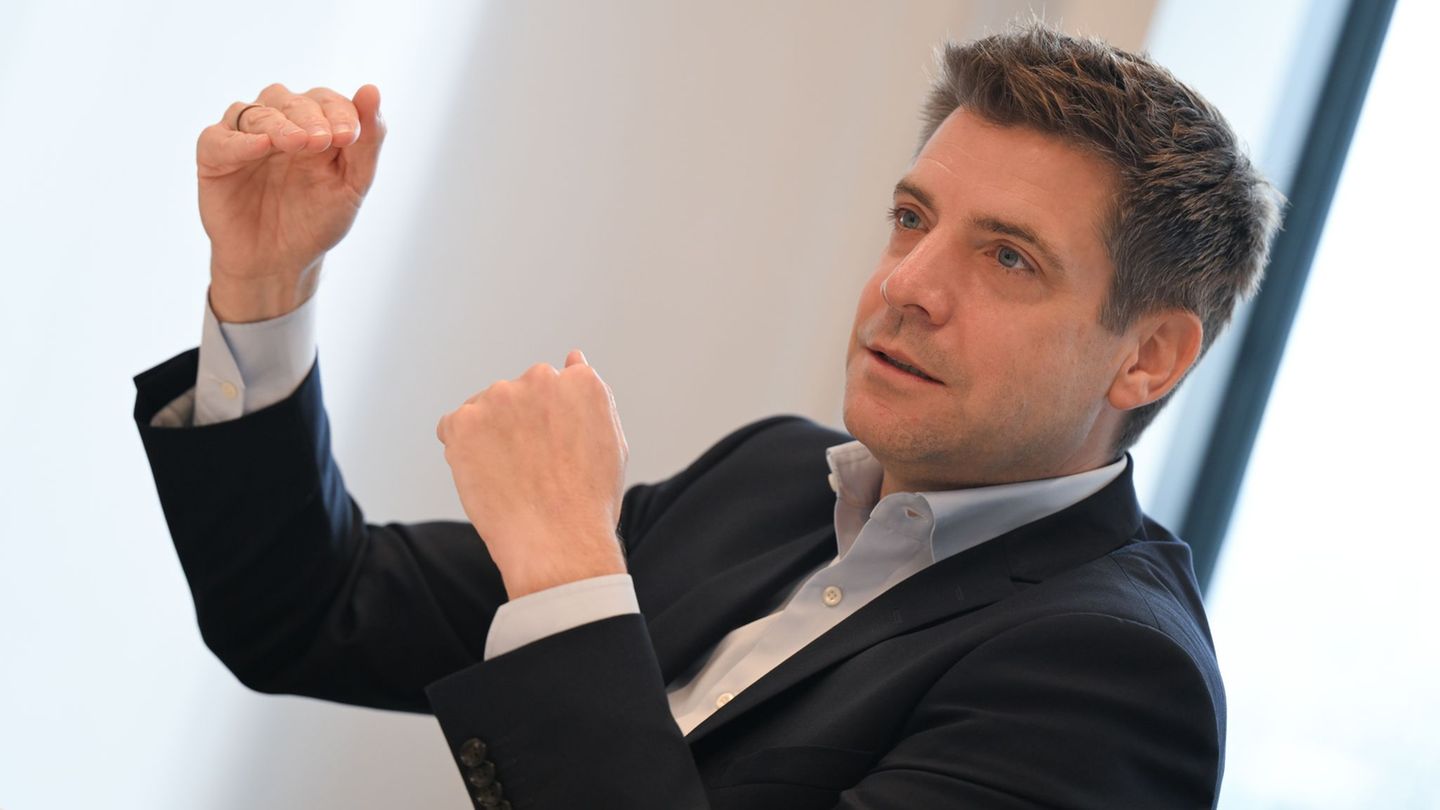Sharp competition for customers
Ing Germany boss: “No more growth at all costs”
Copy the current link
Add to the memorial list
There should be no second -class customers. But some customer groups want to offer Lars Stoy more. The new boss wants to ensure more growth in Europe’s largest direct bank.
Credit card, children’s current account, incentives for many traders-at speed, Ing Germany boss Lars Stoy wants to close gaps on the offer of Europe’s largest direct bank. “The piece of paper that we have filled in the past seven months is long,” said the manager, who has been running the 100 percent subsidiary of the Dutch Großbank Ing since January 1, 2025, the German Press Agency in Frankfurt.
Especially during holiday periods, some customers are annoyed that the direct bank still has no real credit card on offer, which is sometimes necessary when traveling abroad. Stoy promises to remedy: “We are working on realizing such a solution for our customers in 2026. If we think about needs -based solutions for customers, a credit card is certainly part of it. This is thick on the slip and is highly prioritized.”
No customer growth at any cost
In March, the ING in Germany crossed the long targeted brand of ten million customers. “The total number of customers is welcome to grow, but not at all costs,” emphasized Stoy. “We want to intensify the connection with customers.” This is “not a growth cancellation, but there will be no growth at all costs”.
Curse account for children from the age of 7 in August
Stoy sees growth potential in younger customer groups: “We will introduce a checking account junior for 7 to 17 year olds in August.” This can first open parents whose children already have a depot or a call money account at ING Germany. “From the beginning of next year we will roll it out wider, also for new customers.”
For safety reasons, the under 18-year-olds cannot cover the account, certain businesses (gambling, alcohol, tobacco) are excluded. “With this account we want to introduce young people to financial issues,” says Stoy. “Parents have a cockpit that they can see through what their children do with the account.”
No second -class customers
Stoy assures that there will continue to be the first and second class at ING Germany: “We have grown up with the approach that customers are treated with us, no matter how much money they get to us.
At the same time, incentives are necessary for those who want to do more business. Since July, the institute has been rewarding customers who act a lot: Whoever rises from the “basic level” to platinum status receives discounts. “But that has no deterioration at all for those who do a trade every now and then,” says Stoy. “I would not rule out that we will also bring such customer loyalty programs for other areas.”
Bank primarily wants more app users
For some years now, the ING has been increasingly on house bank customers who not only park money, but also provide earnings through building finance, consumer loans or savings savings. In the future, the central measurement variable will be those house bank customers who regularly use the bank’s app.
Ing Germany counted 2.75 million of such “mobile primary customers” at the end of June – at 3.1 million house bank customers. “The group has the goal of growing one million mobile primary customers a year,” says Stoy. “Germany contributes around 30 percent – and that is also our claim forward.”
Fewer interest income – less profit
However, the sunken key interest rates reduce the profit. In the second quarter, the input tax with EUR 381 million was a good fifth below the previous year’s value, as early as the first quarter of a year there was a decline, as can be seen from figures from the Dutch parent company Ing.
“The bottom line is that the key figures are very healthy,” emphasizes Stoy. “It is obvious that recorder results such as 2023, when central bank interest rates have risen so jump -like, is obvious.”
The declared goal of the ING Group is to become more interest-independent, says Stoy: “With us, over 80 percent of the result comes from the interest result, the rest from commissions. We want to change this relationship in favor of the commission surplus. Nevertheless, we will always be a more interest-heavy house.”
Stoy’s goal: always one nose in the competition
It is important that the ING Germany, “especially in private customer business, takes up speed”. Some competitors did “their job really well,” says Stoy with a view of neo banks such as N26, Trade Republic and Revolut. “In the best case, we always remain one nose. The ING is the largest digital bank in Germany, and the claim remains certainly.”
dpa
Source: Stern




